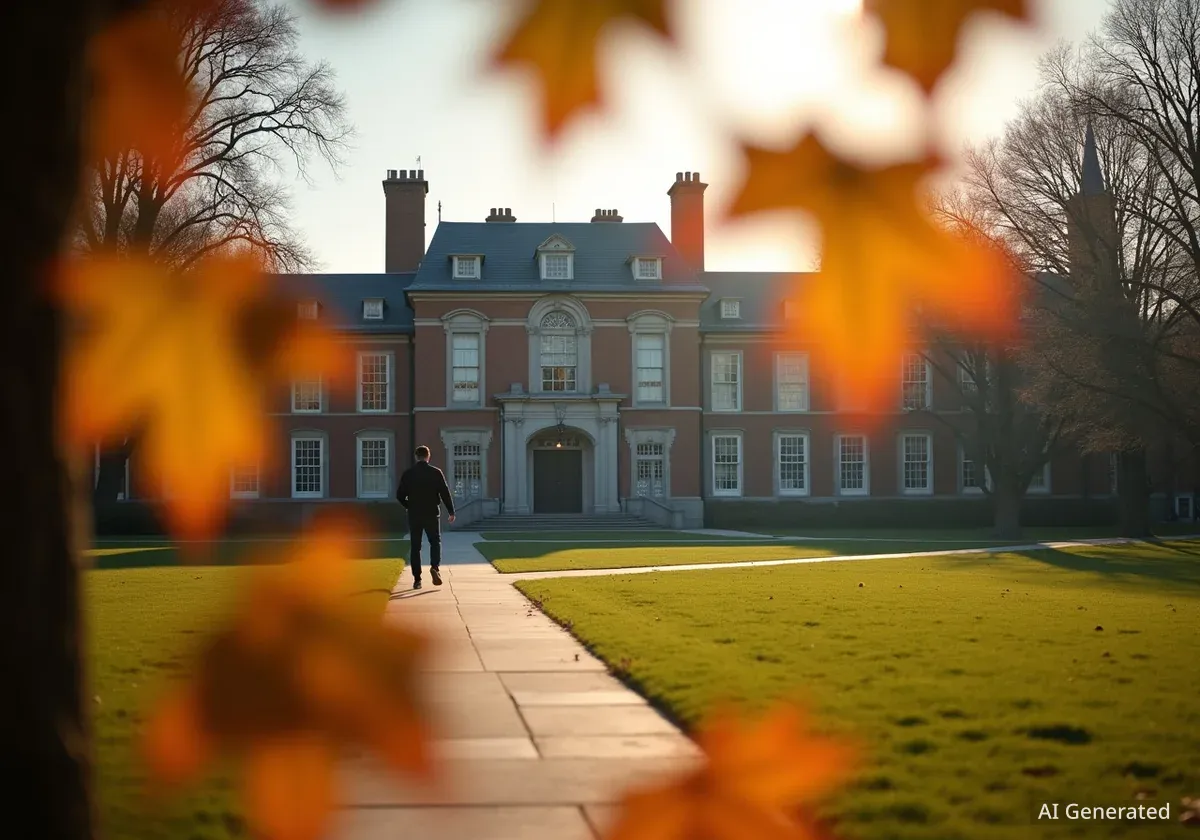Cornell University has agreed to a $60 million settlement with the Trump administration, ending federal investigations into alleged civil rights violations. The agreement restores over $250 million in withheld research funding. This move aligns Cornell with the administration's interpretation of civil rights laws, impacting policies on antisemitism, racial discrimination, and transgender issues.
President Michael Kotlikoff announced the agreement, emphasizing that it upholds the university's academic freedom. The funding freeze had previously stalled research and threatened academic programs. This resolution marks a significant development in the ongoing dialogue between the administration and elite educational institutions.
Key Takeaways
- Cornell University pays $60 million to end federal investigations.
- Over $250 million in research funding has been restored to Cornell.
- The university accepts the Trump administration's civil rights interpretations.
- Agreement impacts policies on antisemitism, racial discrimination, and transgender issues.
- $30 million will directly go to the U.S. government, $30 million for agricultural research.
Federal Funding Restored After Investigations
The agreement between Cornell University and the Trump administration concludes investigations into alleged civil rights violations. President Kotlikoff confirmed the university was not found in violation of federal law. The resolution ensures the continuation of vital research and academic initiatives.
The government had frozen more than $250 million in research funding. This freeze had severe consequences, impacting numerous research projects and the careers of many academics. The university's president noted the threat to future academic programs.
Financial Details
- Total settlement amount: $60 million
- Payment to U.S. government: $30 million
- Investment in U.S. farmer research: $30 million over three years
- Restored federal funding: Over $250 million
The $30 million allocated for agricultural research will focus on programs incorporating artificial intelligence and robotics. The goal is to reduce costs for U.S. farmers. Cornell, founded as a land-grant school, has a long history of engagement with American agriculture.
Compliance with Civil Rights Interpretations
The six-page agreement mandates Cornell's compliance with the administration's interpretation of civil rights laws. This includes guidelines on antisemitism, racial discrimination, and transgender issues. A Justice Department memo, which calls for abandoning diversity, equity, and inclusion (DEI) programs and certain transgender-friendly policies, will serve as a training resource for Cornell's faculty and staff.
The university must also provide extensive admissions data. The government has been collecting this data from various campuses to ensure that race is no longer a factor in admissions decisions. This follows a 2023 Supreme Court decision that ended affirmative action in admissions.
Education Secretary Linda McMahon called it a transformative commitment that puts a focus on "merit, rigor, and truth-seeking." She added, "These reforms are a huge win in the fight to restore excellence to American higher education and make our schools the greatest in the world."
Broader Administration Policy
This agreement is part of a larger effort by the Trump administration to influence elite colleges. The administration has accused some institutions of tolerating antisemitism and promoting certain political ideologies. President Trump has also offered incentives, such as preferential access to federal funding, for schools that align with his agenda.
University Leadership Responds
President Kotlikoff stated that the agreement revives Cornell's partnership with the federal government. He also affirmed the university’s commitment to academic freedom, independence, and institutional autonomy. These principles have been central to Cornell’s excellence since its founding.
Kotlikoff was among hundreds of university presidents who signed an April letter. This letter opposed what they called "unprecedented government overreach and political interference" from the Trump administration. Despite this, he confirmed the agreement preserves the campus' independence.
"In short, it recognizes our rights, as a private university, to define the conditions on our campuses that advance learning and produce new knowledge," Kotlikoff wrote.
Comparison with Other Institutions
Cornell's deal is similar to one signed by the University of Virginia last month. It is shorter and less prescriptive than agreements reached with Columbia University and Brown University. The direct payment to the government has been a contentious point in these negotiations.
- Columbia University: Agreed to pay $200 million directly to the government.
- Brown University: Agreed to pay $50 million to state workforce organizations.
- University of Virginia: Reached a deal with no direct payment.
Attorney General Pam Bondi highlighted the value for colleges that cooperate with the administration. She stated that colleges receiving federal funding "must fully adhere to federal civil rights laws and ensure that harmful DEI policies do not discriminate against students."
Future Oversight and Compliance
The agreement is effective through the end of 2028. Cornell's president must personally certify compliance with the terms each quarter. This ensures ongoing adherence to the civil rights interpretations and reporting requirements specified in the deal.
The focus on "merit, rigor, and truth-seeking" underscores the administration's goals for higher education. This settlement could set a precedent for other universities still negotiating with the government, including Harvard, which remains in a standoff with the administration.
The implications of this agreement extend beyond Cornell. It signals a continued push by the administration to reshape policies and practices within American higher education, particularly concerning issues of diversity, equity, and inclusion, as well as admissions criteria.





